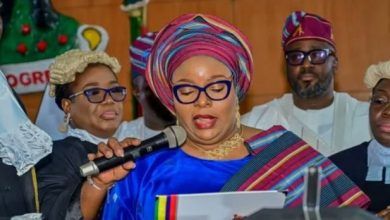
The Chairman of the Presidential Committee on Fiscal Policy and Tax Reforms Taiwo Oyedele, has expressed concerns about the potential implications of U.S. President Donald Trump’s proposed External Revenue Service (ERS), which was announced during his second inauguration. According to Oyedele, the plan could further complicate the already intricate global tax system and disrupt international trade.
During his inaugural speech, President Trump revealed plans to establish the External Revenue Service, an agency designed to collect tariffs, duties, and other revenues from foreign countries. Trump justified the proposal by stating that the U.S. would no longer tax its citizens to enrich other countries. Instead, the U.S. would impose tariffs and taxes on other nations to benefit its own citizens, generating a significant influx of revenue into the U.S. treasury.
Oyedele, who has been leading Nigeria’s ongoing tax reforms, reacted to Trump’s announcement on his X handle, stating that this move could complicate the global tax system and create challenges for international trade. He emphasized that such a shift in global tax dynamics underscores the importance of Nigeria’s ongoing tax reforms to ensure the country is prepared to navigate any potential disruptions.
“We can better navigate potential challenges and seize any opportunities this development may present,” Oyedele noted.
In line with Nigeria’s efforts to overhaul its tax system, President Bola Tinubu recently submitted four tax reform bills to the National Assembly, aimed at streamlining Nigeria’s tax administration. The bills include the Nigeria Tax Bill, Nigeria Tax Administration Bill, Nigeria Revenue Service Establishment Bill, and the Joint Revenue Board Establishment Bill. These reforms are part of Nigeria’s broader strategy to improve its fiscal management and enhance revenue generation.
The introduction of these tax reform bills has sparked considerable debate, particularly regarding their equity, implementation, and economic impact. The proposed changes have faced resistance in certain regions, especially in the northern parts of the country. However, in a significant development, the Nigerian Governors’ Forum (NGF) recently endorsed the bills and called for a revised Value Added Tax (VAT) sharing formula to promote fair resource distribution among states.
The proposed VAT sharing formula suggests that 50% of VAT revenue should be distributed equally among states, 30% based on derivation, and 20% based on population. Oyedele has expressed support for this revised formula, highlighting its potential to foster greater fairness in resource distribution.
Oyedele’s remarks come at a time when global economic and trade policies are undergoing significant shifts. Trump’s External Revenue Service proposal could lead to a restructuring of international trade relationships and introduce new challenges for countries like Nigeria, which are in the process of strengthening their domestic tax systems.





